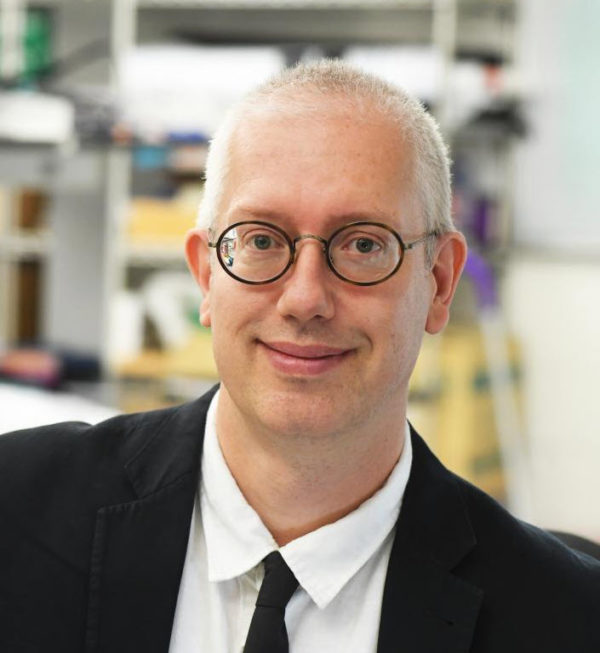
Speaker:
Henry Hess (Columbia University)
Host:
Winfried Teizer
Location:
Address:
Mitchell Institute for Fundamental Physics & Astronomy
College Station, Texas 77843
Motor proteins, such as kinesin, can serve as biological components in engineered nanosystems. A proof-ofprinciple application is a “smart dust” biosensor for the remote detection of biological and chemical agents, which is enabled by the integration of recognition, transport and detection into a submillimeter-sized microfabricated device. The development of this system has revealed a number of challenges in engineering at the nanoscale, particularly in the guiding, activation, and loading of kinesin-powered molecular shuttles. Overcoming these challenges requires the integration of a diverse set of technologies, illustrates the complexity of biophysical mechanisms, and enables the formulation of general principles for nanoscale engineering.
Molecular motors also introduce an interesting new element into self-assembly processes by accelerating transport, reducing unwanted connections, and enabling the formation of non-equilibrium structures. The formation of nanowires and nanospools from microtubules transported by kinesin motors strikingly illustrates these aspects of motor-driven selfassembly.
Finally, the controlled placement of kinesin motor proteins requires a background of perfectly non-fouling surfaces. This has led us to tackle the long-standing challenge of designing surfaces which are resistant to protein adsorption with new experimental and theoretical approaches.
Copyright © 2024. All rights reserved, Texas A&M University Trademark | Texas A&M University, College Station, Texas 77843